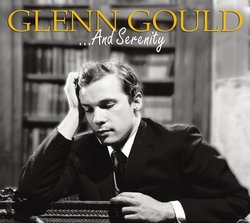| All Artists: Johann Sebastian Bach, Jean Sibelius, Richard [1] Strauss, Johannes Brahms, Felix [1] Mendelssohn, Carl Philipp Emanuel Bach, Edvard Grieg, Alexander Scriabin, Glenn Gould Title: ...And Serenity Members Wishing: 0 Total Copies: 0 Label: Sony Original Release Date: 1/1/2003 Re-Release Date: 10/7/2003 Album Type: Original recording remastered Genre: Classical Styles: Chamber Music, Forms & Genres, Ballads, Concertos, Sonatas, Suites, Historical Periods, Baroque (c.1600-1750), Classical (c.1770-1830), Modern, 20th, & 21st Century, Romantic (c.1820-1910) Number of Discs: 1 SwapaCD Credits: 1 UPC: 827969053829 |
Search - Johann Sebastian Bach, Jean Sibelius, Richard [1] Strauss :: ...And Serenity
 | Johann Sebastian Bach, Jean Sibelius, Richard [1] Strauss ...And Serenity Genre: Classical
|
Larger Image |
CD Details |
CD ReviewsA very good sampling. K. Bowersock | Lubbock, TX | 06/21/2005 (4 out of 5 stars) "I own almost all of Glenn Gould's Bach recordings, and if you want that, don't get this (it only has two excerpts, and these are hardly representative of his definitive Bach recordings). However, Bach is not the point of this disc; the reason why I was interested in it was that I wanted to experience how Gould plays some of the composers which he claimed to have great admiration for. I wanted to get a taste of Gould's Brahms, and Strauss, while at the same time understanding how he plays Scriabin and Grieg. I was not disappointed; it is a great disk filled with extraordinarily beautiful music. This disk shows that Gould can master many of the middle to late romantics just as easily as he can Bach and Schoenberg(and for me, this disk did one of its other jobs as well, I recently bought the complete set of Gould's Brahms recordings - so in opposition to the previous reviewer: good job Sony). Overall a worthwhile Gould sampler set for all lovers of music." SERENITY refers to a SLOW TEMPO... S�bastien Melmoth | H�tel d'Alsace, PARIS | 05/17/2006 (5 out of 5 stars) "The other reviews seem to have missed the point of this disc: it's simply a culled set of GG's recordings of SLOW pieces for a totally relaxed listening experience. Hence we have adagios, andandes, largos, sarabandes, etc. This follows on the heels of Karajan's Adagio series which seem to have been successful. This is a lovely set and there's nothing wrong with it." A brave revelation of his hidden soul Ying Lu | Detroit, MI United States | 11/22/2006 (5 out of 5 stars) "A bit out of characteristic for Glenn Gould's style, but the selection and the performances are nonethless stunning. My favorite is the opening piece by Bach, although Brahm's and Strauss works are just as captivating. It's evident that the pianist is malleable to diverse interpretation and artistry."
|

 Track Listings (15) - Disc #1
Track Listings (15) - Disc #1